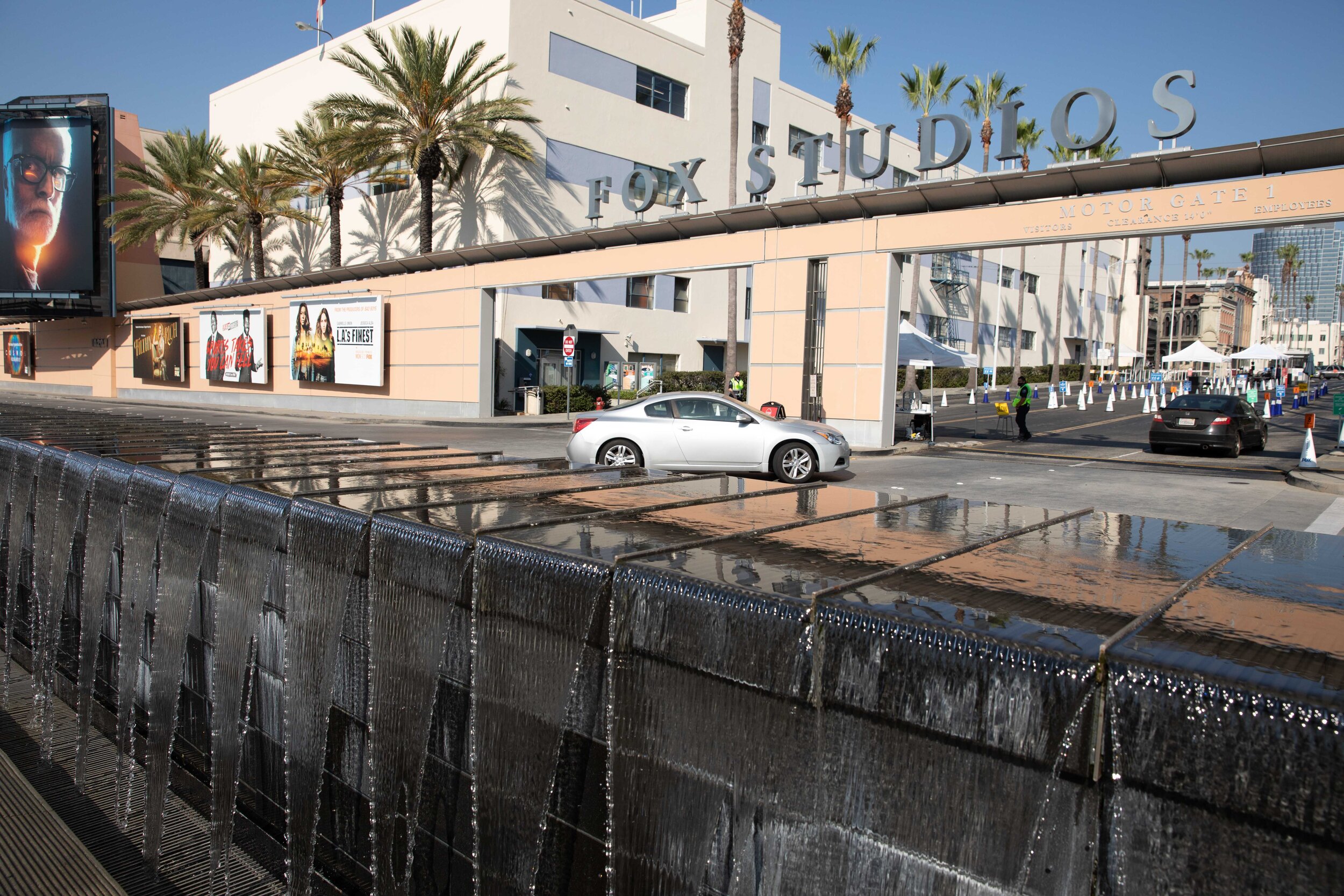Entertainment: Essentially Essential
As Los Angeles remains the heart of the entertainment industry during the pandemic, the question is raised as to whether people in the industry are deemed essential workers within the current vaccine distribution rollout.
Security personnel patrol and check incoming vehicles at the South entrance of the Fox Lot in Century City, Los Angeles, Calif. Oct. 01, 2020 (Jorge Devotto | The Corsair)
In March 2020, entertainment production was brought to a halt due to national COVID-19 stay-at-home orders. In June, the state of California and the Los Angeles County Department of Public Health authorized their return to work at a time when only “essential” industries were allowed to operate. Since then, entertainment production crews have worked 60-70 hours a week on set to create a variety of entertainment content.
As Los Angeles reaches a year into the pandemic, the rollout of vaccinations is on the rise. It's evident that herd immunity from the virus is a shared goal for the future. The Center for Disease Control and Prevention makes recommendations to federal, state, and local governments regarding who should get vaccinated first. Currently, the vaccine distribution in L.A. is governed by a series of tiers which include: 1a, 1b, and 1c.
Tier 1a distribution includes healthcare personnel and residents in long-term care facilities. Frontline essential workers and people aged 75 and older are considered in Tier 1b. Lastly, Tier 1c includes people aged 16-74 with underlying medical conditions and “other” essential workers.
The essential workers in 1c range from those who work in the food industry to transportation logistics. These jobs that were deemed essential enough to continue to work are now essential enough to receive the vaccine.
Ultimately, there’s an unclear distinction between who is deemed an essential worker during the pandemic. Entertainment industry workers were deemed essential enough to begin production yet have not been specifically listed under Tier 1c.
The difference between the entertainment industry and other essential workers may be that hospital, grocery store, and restaurant employees are “subject to the general public who are at a much higher danger rate. [Whereas] the entertainment industry has had very vigorous testing protocols and a much more confined exposure,” said Colleen Haley, a camera assistant for the Showtime television show, “The L Word: Generation Q.”
Select productions are allowed to continue as long as strict protocols are followed. Haley said the main adjustment she’s seen in her job is “primarily in the use of personal protection equipment (PPE).” This requires workers to wear a CN95 mask and a face shield, as well as arrive to work early in order to receive a nasal swab PCR test. “The difficulty of working with the PPE is very much countered with gratitude at the fact that I'm able to work and be around people and feel like a normal person again.”
According to the Los Angeles County Department of Public Health, 2,741,577 vaccines have been administered as of early March. “I sure wish we could all get it soon and fast. I do appreciate that they're taking it in stages and giving it to the more vulnerable and essential people. I would never try to jump the line and get it before anybody who was more deserving of it,” said Daisy Smith, a camera assistant on a project for Apple TV+.
Even though all signs point to the entertainment industry being essential, there has been no official word as to their vaccine eligibility date. This leaves the entertainment industry with the big question of: when? Even if entertainment industry workers aren’t able to receive the vaccine under Tier 1c, they will be eligible for the vaccine by May 1, along with all American adults, according to President Biden.
















